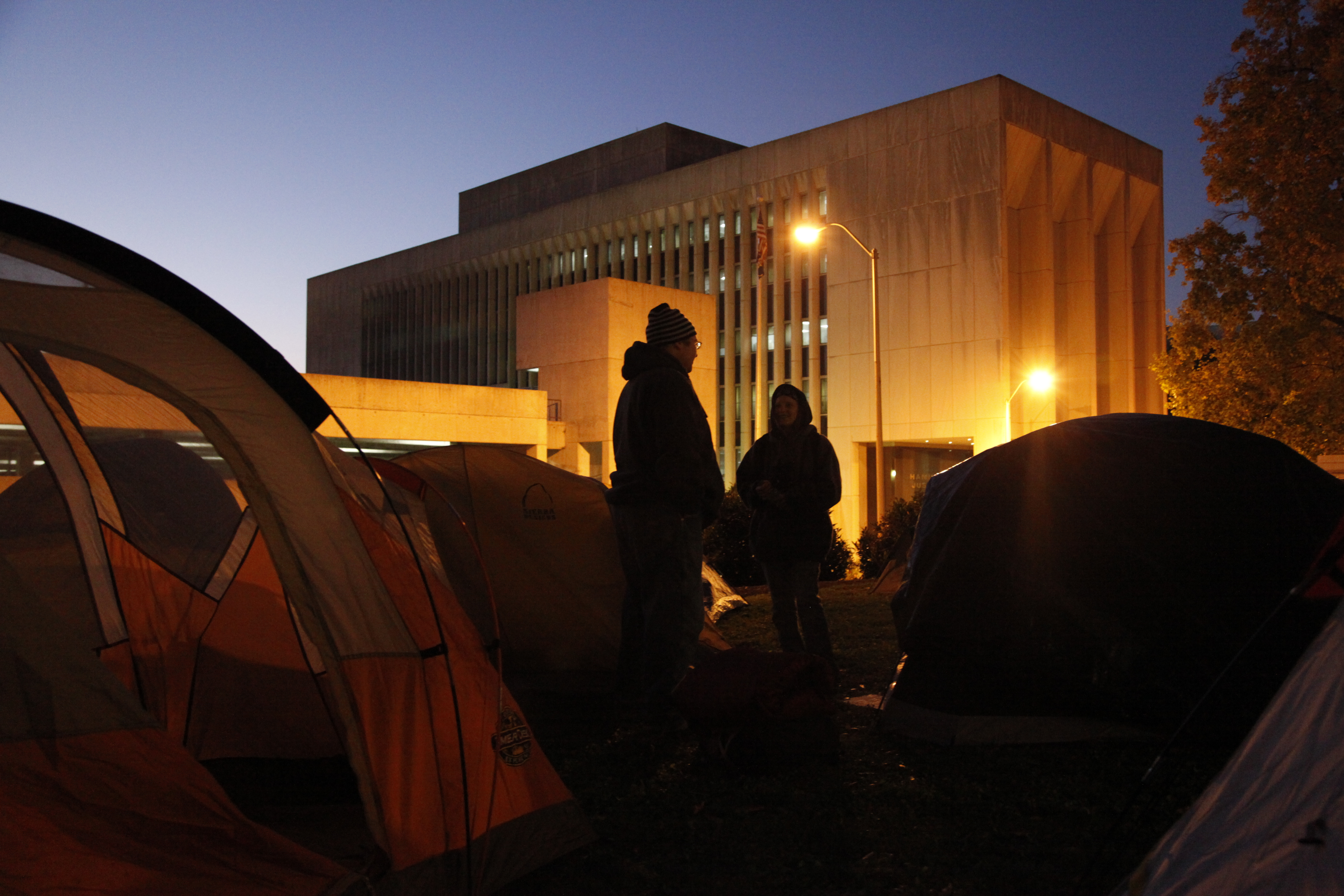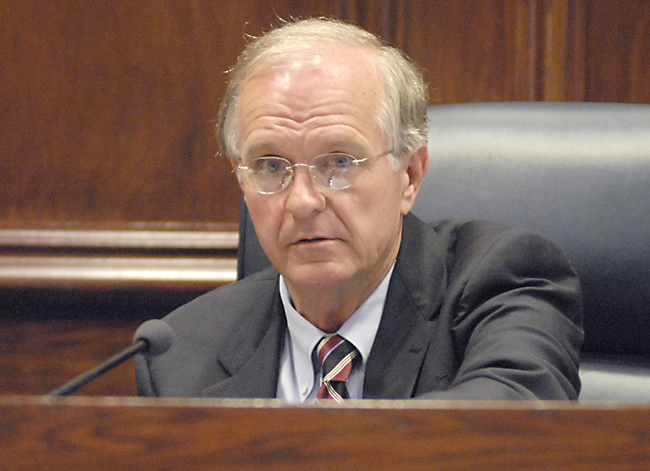 Occupiers Howard Hayes and Heidi Davis (left to right) talk amongst Occupy Chattanooga's tents just after sunset near the Hamilton County Courthouse on Thursday. The group holds general assemblies most nights at 7 p.m. to discuss the day's events and address any issues that might have occurred during the day.
Occupiers Howard Hayes and Heidi Davis (left to right) talk amongst Occupy Chattanooga's tents just after sunset near the Hamilton County Courthouse on Thursday. The group holds general assemblies most nights at 7 p.m. to discuss the day's events and address any issues that might have occurred during the day.The ball is back in the Hamilton County Commission's hands after Occupy Chattanooga filed a motion to dismiss a complaint the commission filed against it earlier this month in federal court.
The commission must respond within 21 days to the group's argument that the county's action against it is premature and inappropriate for federal court to hear.
Though the commission passed new rules on Jan. 4 that govern public use of county property, no enforcement action has been taken against the Occupy group, which has been camping on the courthouse lawn for several months.
Instead, a week after passing the new rules, the commission sued the group and nine individually named defendants in federal court, asking for a ruling that the new rules are constitutional and enforceable. It also wants Occupy to pay legal fees in the suit.
Occupy and its attorneys, including D.C.-based Public Citizen Litigation Group, said federal court is not the appropriate place for an advisory opinion about whether a local law is valid.
"As we state in our motion, it's not like any law enforcement have come to our clients and said, 'Please stop this, or we're going to arrest you if you don't stop this,'" Scott Michelman of Public Citizen said Monday. "There's no showing they've tried to enforce the law and have been rebuffed. Some of our clients have never even been camping out there."
County Commission Chairman Larry Henry said Monday, "It's in the court's hands. We'll let them make a decision on it."
Michelman and local attorney David Veazey argue in the group's motion that the U.S. Supreme Court ruled in 1983 that federal courts shouldn't make the types of court judgments the commissioners want.
"Permitting such suits would authorize local governments to drag their political opponents into court to seek advisory opinions, rather than waiting for concrete disputes to happen," the group's motion argues.
Occupy Chattanooga lso is arguing that rules commissioners passed in January shouldn't apply retroactively to the protesters, who moved to the courthouse lawn in November. Occupy is asking the court to schedule oral arguments on its motion to dismiss.
"The county's request for costs and fees highlights the absurdity of the suit, which seeks to make the defendants, who have no demonstrated interest in the validity of the ordinance, financially responsible for a judgment in which they have no stake," the group's motion states.
Michelman declined to weigh the protesters' chances of having the case dismissed.
"It's always difficult to predict how judges will rule on particular issues, but the law is very strong for us on this point," Michelman said. "By suing demonstrators in this case for a ruling on its law and by seeking to recover from them the cost of its lawsuit, the county is effectively attempting to impose a monetary penalty on this group for its political activity."
Meanwhile, protesters continue to camp and meet on the county courthouse lawn.
"I think that, if anything, it's strengthened their resolve," Veazey said.
